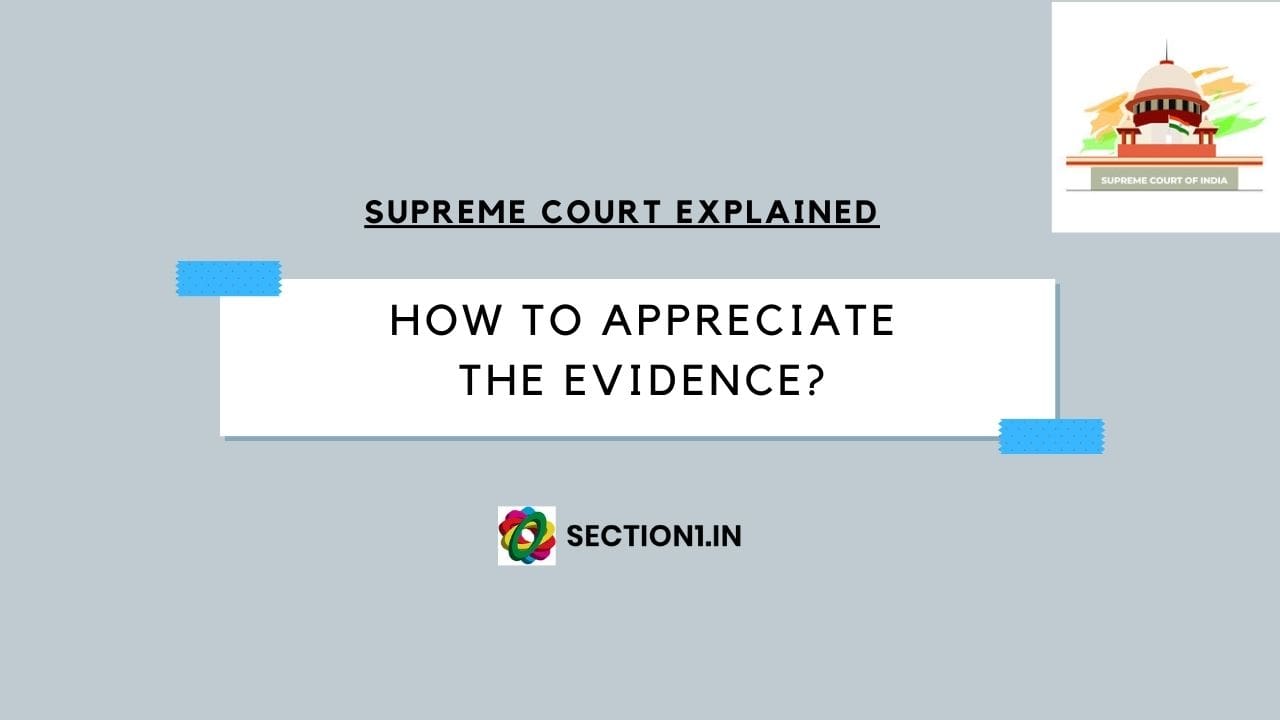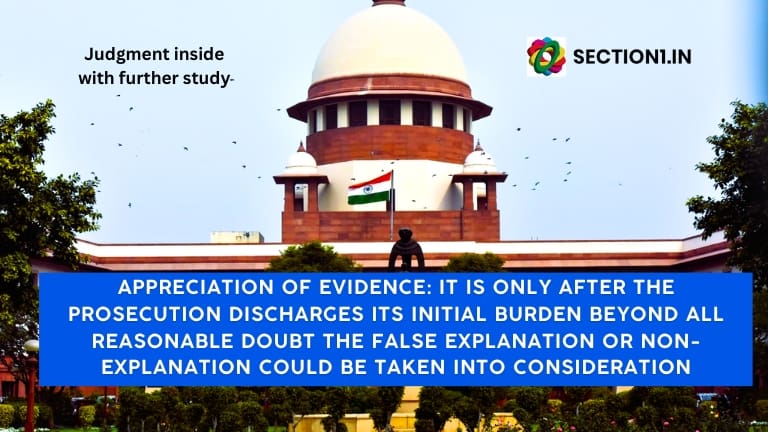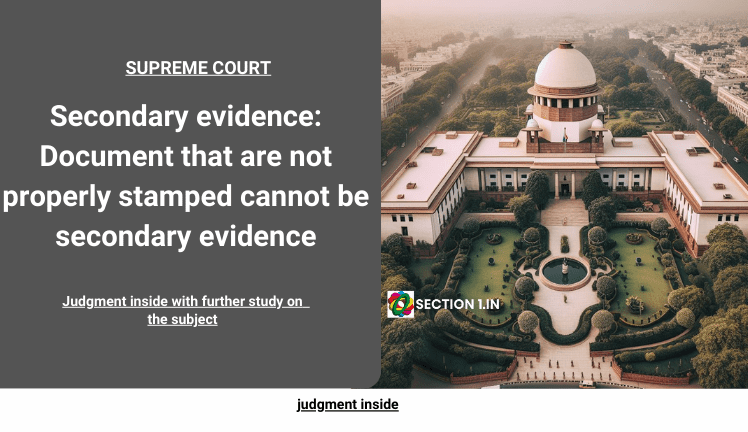DISCUSSION SCOPE OF APPEAL FILED AGAINST THE ACQUITTAL
25. While dealing with an appeal against acquittal by invoking Section 378 of the Cr.PC, the Appellate Court has to consider whether the Trial Court’s view can be termed as a possible one, particularly when evidence on record has been analyzed. The reason is that an order of acquittal adds up to the presumption of innocence in favour of the accused. Thus, the Appellate Court has to be relatively slow in reversing the order of the Trial Court rendering acquittal. Therefore, the presumption in favour of the accused does not get weakened but only strengthened. Such a double presumption that enures in favour of the accused has to be disturbed only by thorough scrutiny on the accepted legal parameters.
Preceedents
Mohan @Srinivas @Seena @Tailor Seena v. State of Karnataka, [2021 SCC OnLine SC 1233]
N. Vijayakumar v. State of T.N., [(2021) 3 SCC 687]
DELAY IN SENDING THE (FIR) FIRST INFORMATION REPORT TO THE MAGISTRATE
26. The jurisdictional Magistrate plays a pivotal role during the investigation process. It is meant to make the investigation just and fair. The Investigating Officer is to keep the Magistrate in the loop of his ongoing investigation. The object is to avoid a possible foul play. The Magistrate has a role to play under Section 159 of Cr.PC.
27. The first information report in a criminal case starts the process of investigation by letting the criminal law into motion. It is certainly a vital and valuable aspect of evidence to corroborate the oral evidence. Therefore, it is imperative that such an information is expected to reach the jurisdictional Magistrate at the earliest point of time to avoid any possible ante-dating or ante-timing leading to the insertion of materials meant to convict the accused contrary to the truth and on account of such a delay may also not only gets bereft of the advantage of spontaneity, there is also a danger creeping in by the introduction of a coloured version, exaggerated account or concocted story as a result of deliberation and consultation. However, a mere delay by itself cannot be a sole factor in rejecting the prosecution’s case arrived at after due investigation. Ultimately, it is for the Court concerned to take a call. Such a view is expected to be taken after considering the relevant materials.
Precedents
Shivlal v. State of Chhattisgarh, [(2011) 9 SCC 561]
Rajeevan v. State of Kerala, [(2003) 3 SCC 355]
State of Rajasthan v. Om Prakash, [(2002) 5 SCC 745]
DELAY IN RECORDING THE STATEMENT UNDER SECTION 161 CR.P.C
28. The Investigating Officer is expected to kick start his investigation immediately after registration of a cognizable offense. An inordinate and unexplained delay may be fatal to the prosecution’s case but only to be considered by the Court, on the facts of each case. There may be adequate circumstances for not examining a witness at an appropriate time. However, non-examination of the witness despite being available may call for an explanation from the Investigating Officer. It only causes doubt in the mind of the Court, which is required to be cleared.
29. Similarly, a statement recorded, as in the present case, the investigation report is expected to be sent to the jurisdictional Magistrate at the earliest. A long, unexplained delay, would give room for suspicion.
Precedents
Shahid Khan v. State of Rajasthan, [(2016) 4 SCC 96]
Ganesh Bhavan Patel v. State of Maharashtra, [(1978) 4 SCC 371]
RECOVERY UNDER SECTION 27 OF THE EVIDENCE ACT
30. Section 27 of the Evidence Act is an exception to Sections 24 to 26. Admissibility under Section 27 is relatable to the information pertaining to a fact discovered. This provision merely facilitates proof of a fact discovered in consequence of information received from a person in custody, accused of an offense. Thus, it incorporates the theory of “confirmation by subsequent facts” facilitating a link to the chain of events. It is for the prosecution to prove that the information received from the accused is relatable to the fact discovered. The object is to utilize it for the purpose of recovery as it ultimately touches upon the issue pertaining to the discovery of a new fact through the information furnished by the accused. Therefore, Section 27 is an exception to Sections 24 to 26 meant for a specific purpose and thus be construed as a proviso.
31. The onus is on the prosecution to prove the fact discovered from the information obtained from the accused. This is also for the reason that the information has been obtained while the accused is still in the custody of the police. Having understood the aforesaid object behind the provision, any recovery under Section 27 will have to satisfy the Court’s conscience. One cannot lose sight of the fact that the prosecution may at times take advantage of the custody of the accused, by other means. The Court will have to be conscious of the witness’s credibility and the other evidence produced when dealing with a recovery under Section 27 of the Evidence Act.
Precedents
Kusal Toppo v. State of Jharkhand, [(2019) 13 SCC 676]
Navaneethakrishnan v. State, [(2018) 16 SCC 161]
H.P. Admn. v. Om Prakash, [(1972) 1 SCC 249]
Aghnoo Nagesia v. State of Bihar, [(1966) 1 SCR 134]
K. Chinnaswamy Reddy v. State of A.P., [(1963) 3 SCR 412]
PARTY: JAFARUDHEEN & ORS. VERSUS STATE OF KERALA – CRIMINAL APPEAL NOS. 430-431 OF 2015 – April 22, 2022.
https://main.sci.gov.in/supremecourt/2015/1707/1707_2015_6_1501_35181_Judgement_22-Apr-2022.pdf






